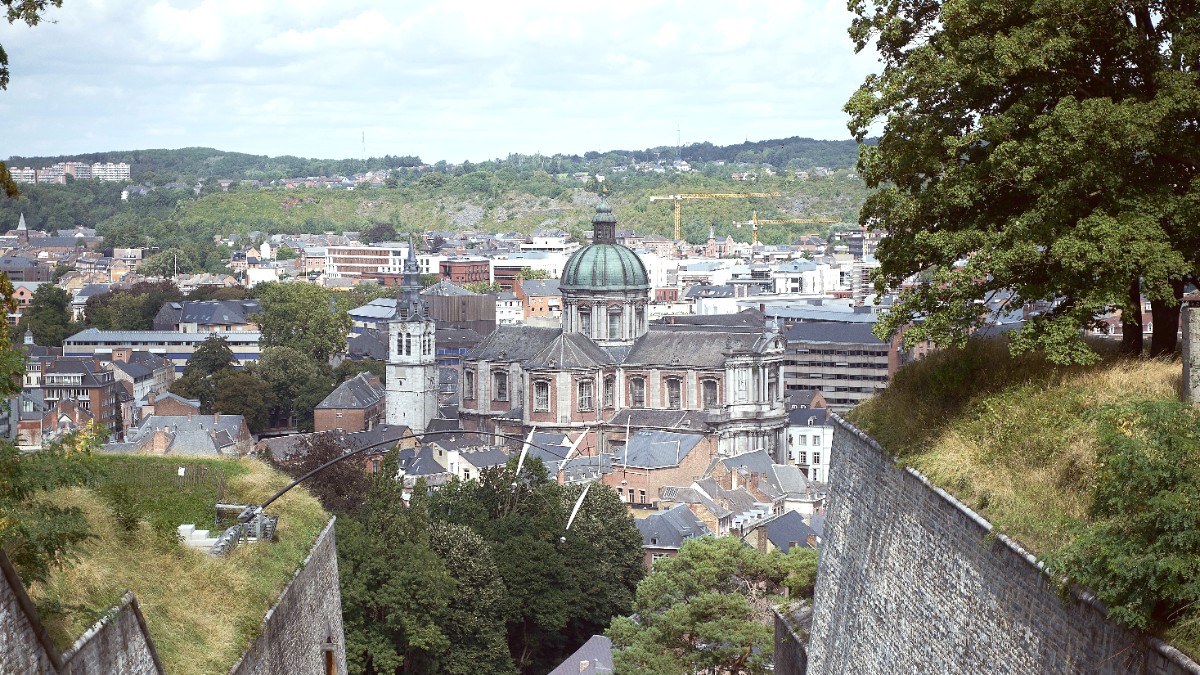
Wallonia, Belgium
Walloon cuisine developed from a history of farming and traditional life. It emphasizes rich, slow-cooked dishes, using local ingredients like pork, beef, game, and root vegetables. Namur, as a regional capital, showcases these traditions.
Staples of Walloon cooking include various meats (pork, beef, rabbit), potatoes, chicory, and endives. Mussels are also a popular choice, often served with fries. Flavors tend to be savory and robust, often with subtle sweetness from fruits or Belgian beer. Sauces complement main ingredients.
Lunch: 12:00 PM - 2:00 PM. Dinner: 6:00 PM - 9:00 PM or later. Many restaurants close between lunch and dinner service.
Recommended for dinner, especially at popular restaurants or on weekends. Service charge is typically included; a small additional tip (rounding up or 5-10%) appreciated for good service. Bread often served with meals, sometimes for a small charge.
Tap water in Namur is safe to drink. Restaurants typically serve Bottled water, which incurs a charge. Ask for "une carafe d'eau" (a carafe of water) for tap water, though less common than in some other European countries.
Distinct local specialty, often prepared with garlic butter or a rich sauce. Seek them in traditional Namur restaurants.
A truly unique local delicacy.
Hearty Belgian beef stew, slow-cooked in rich dark Belgian beer with onions and bacon. Find it in many traditional brasseries.
Deep, savory flavors and comforting warmth.
Meatballs in a sweet-sour sauce, popular throughout Wallonia. The sauce uses Liege syrup, vinegar, and onions.
A staple of Walloon home cooking.
Spiced shortcrust biscuits with a caramelized flavor, popular throughout Belgium.
Seek out local chocolatiers in Namur for artisanal pralines and truffles.
Namur has restaurants recognized in guides like Michelin or Gault & Millau. They offer modern Belgian or French cuisine focusing on seasonal ingredients and refined techniques.
A plentiful selection of brasseries and mid-range restaurants fill the city center. These offer a mix of traditional Belgian dishes and popular international cuisine.
For a very affordable and satisfying meal, head to a "friterie" for a cone of crispy fries. Numerous sandwich shops and bakeries also provide quick options.
This large outdoor market on Saturdays has a wide array of fresh produce, artisanal cheeses, quality meats, and some prepared foods.
Excellent for local life experience.
A smaller, more permanent market for fresh produce and local specialties. Check its specific opening hours.
Great for fresh, local finds.
Cougnou (sweet bread), mulled wine, or hot peket during Christmas markets.
Summer festivals feature barbecued meats and seasonal fruit desserts.
Frites and waffles are commonly sold by street vendors year-round.
Belgian beer always available, Peket for a local spirit.
Dedicated Halal restaurants are limited. Some Middle Eastern or North African restaurants may feature Halal options; confirm directly.
Best to confirm with restaurants.
Dedicated Kosher options are very limited. Rely on pre-packaged foods from larger supermarkets or meals that fit restrictions.
Self-catering might be needed.
Beyond HappyCow, online forums and specific travel blogs focused on dietary restrictions in Belgium offer valuable information and restaurant recommendations.
Locals are generally accommodating once they understand your needs.
Some local culinary schools or tour operators in Namur might offer classes on Belgian or Walloon cuisine, teaching traditional dishes.
In the surrounding Walloon countryside, visit local farms, artisanal cheese producers, or traditional breweries, especially in the Condroz region.
Namur hosts various food-related events including seasonal markets and beer festivals. The Fêtes de Wallonie in September features numerous food stalls.
A guide to understanding Belgium's rich and diverse beer tradition. A valuable resource for beer enthusiasts.
Discover various styles and breweries.
Purchase regional specialties like artisanal cheeses, cured meats, and local condiments to take home.
Great for edible souvenirs.
Walloon cuisine heavily uses fresh, seasonal ingredients grown in the region.
Expect substantial, flavorful stews and meat dishes reflecting traditional cooking.
Belgian beer is not just a drink; it's a cooking ingredient in many Walloon specialties.
Always check restaurant opening hours, as many close between lunch and dinner service.